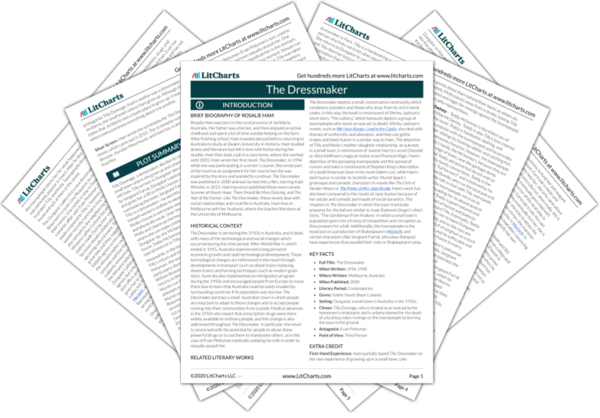Rather than participate in the Dungatar community activities, Tilly, Molly, and Teddy—who are all outcasts in the town—go outside of Dungatar for their entertainment. This reflects the idea that Tilly has had experiences elsewhere and has become open-minded and worldly as a result of this. Teddy is also naturally open-minded and does not follow along with the town’s narrowminded rejection of Tilly. However, Tilly is reluctant to open up to Teddy and tell him about her past. On another note,
Sunset Boulevard is a film about a forgotten film star who yearns for her glory days as a great actress, much like the Dungatar residents romanticize their own conservative values which are rooted in the past.


